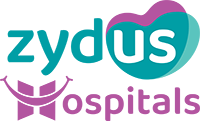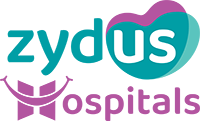
Physiotherapy & Rehabilitation
Medical Specialities / Physiotherapy & Rehabilitation
Physiotherapists assist patient recovery from surgery, injury & disorders of Neuro- muscular & musculoskeletal system.
Physiotherapists evaluate, diagnose & manage the physiotherapy treatment plans customizing it to each individual patient’s requirements.
Variety of exercise therapy interventions, education, functional activities, manual therapy and modalities like Heat, Cold & Electrical devices are used to achieve the goal of patient care.
All physiotherapists are having specialization of their own fields like - Masters of cardiopulmonary, Neurology sciences, musculoskeletal system, transplantation etc…
Cardiac rehabilitation
It includes support, exercise & education to help strengthen your heart.
It is safe and comfortable for people of all ages & fitness levels because it’s tailor made protocol.
It lowers the risk of death & health complications for patients who have had a cardiac event or procedure and boosts their chances of returning to an active lifestyle.
It reduces hospital readmission for cardiac patients.
Cardiac rehabilitation has 4 phases, first two phases are inside the hospital under supervision of experts is necessary. Phase 2 will be 6 to 12 weeks then phase 3 for 12 weeks in OPD. Phase 4 is community approach with social actions.
Daily record of exercise performance will be given to cardiologist for further references.
Vestibular rehabilitation
Vestibular disorder individuals may experience varying levels of dizziness and postural instability. They may have an inner ear or vestibular system problem. Many people with inner ear damage may stop exercising or moving their head.
Following a thorough evaluation, physiotherapist trained in vestibular rehabilitation will design individualized exercise programs to address these complaints.
Studies have shown that customized and supervised exercised are more beneficial than unsupervised general fitness exercises for people with vestibular disorders.
Exercises for the treatment of dizziness and postural instability are based on the principles of adaptation, substitution, and habituation.
Recovery of gaze and postural stability after vestibular insult is supported by the ability of the remaining vestibular system to adapt its response to relevant stimuli.
In some cases, it is necessary to encourage the use of other systems or strategies to substitute for lost or decreased vestibular function.
Who experience position and movement induced dizziness, habituation exercises are indicated to decrease their response by provoking stimuli.
Additional exercise may also be prescribed to address other impairments that may be affecting a person’s stability, such as decreased lower extremity strength and flexibility.
Goal of physiotherapy treatment includes:
- Improving complaints of visual disturbance with movement.
- Improving static and dynamic balance.
- Decreasing fall risk.
- Reducing general complaints of dizziness.
- Resolving positional vertigo.
- Increasing participation in functional and ocial activities
- Improving overall fitness.
Orthopaedic and sports rehabilitation
Orthopaedic and sports physiotherapy can be life-changing. A skilled physiotherapist can get you back on track with your daily activities after surgery, injury, accident or illness.
Orthopaedic physiotherapy involves the care of your entire musculoskeletal system, which includes your bones, muscles, ligaments, tendons, joints and connective tissue.
Additionally, our sports medicine program is designed to address the sports related injuries that are a common occurrence affecting both young and adult athletes. Early rehabilitation of common injuries is crucial to returning athletes to their maximum level of function. Whether it means treating competitive young athletes or old weekend warriors, we tailor our sports rehabilitation programs to meet the specific needs of each individual.
Conditions treated are:
- Post-operative conditions
- Neck and back pain
- Osteoarthritis of joints
- Tendinitis
- Bursitis
- Muscle strains/ sprains
- Dislocation of joint
- Fractures of bones
- Postural wear and tear
- Amputee rehabilitation
Rehabilitation after surgery:
After you have surgery like hip replacement, knee replacement, knee arthroscopy, rotator cuff repair etc., physiotherapist may help to reduce pain, normalize your walking, improve your range of motion, and prevent excessive scar tissue build up. It may also help you to regain your balance, strength and mobility.
Rehabilitation after acute injury:
An acute injury is one that happens as a result of a single trauma to the body. If you sprain an ankle, tear your meniscus, or herniate a disc in your back, a physiotherapist can help you to –
- manage pain and swelling
- function with the weight bearing restrictions your doctor recommends
- regain as much of your range of motion as possible
- rebuild your strength
- learn how to move in ways that don’t make your condition flare up again
Rehabilitation after chronic injury:
A chronic injury is damage to your body that occurs over time, usually because your movement patterns have caused small, repetitive injuries to your tendons, bones or joints. For example: Shin splints, Carpal tunnel syndrome, Tennis elbow, Trigger finger, Trapezitis
Why choose ZYDUS Physiotherapy & Rehabilitation Centre?
Zydus Physiotherapy Department offers services like –
- Cardiac Rehabilitation
- Pulmonary Rehabilitation
- Neuro Rehabilitation
- Advance Robotic Rehabilitation
- Orthopedic & Sports Rehabilitation
- Vestibular Rehabilitation


